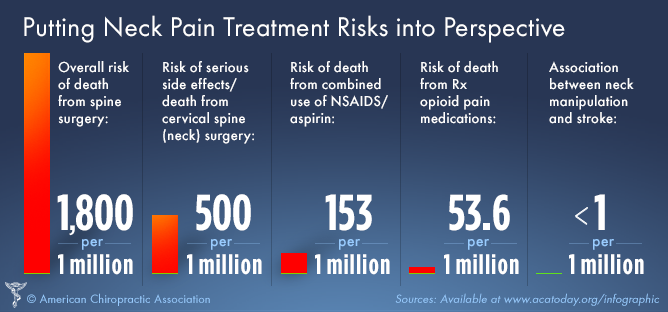Assistance Your Back Wellness By Recognizing How Your Nutritional Selections Can Influence Your Discomfort Levels-- Learn Which Foods To Choose For Alleviation And Which To Prevent
Assistance Your Back Wellness By Recognizing How Your Nutritional Selections Can Influence Your Discomfort Levels-- Learn Which Foods To Choose For Alleviation And Which To Prevent
Blog Article
Material By-Mcclure Wheeler
When it concerns managing your neck and back pain, the food options you make can considerably affect how you really feel daily. Picture having the ability to reduce your pain simply by readjusting what you consume. By understanding the function of nourishment in pain in the back management and understanding which foods to incorporate or steer clear of, you can take proactive steps in the direction of a much healthier and a lot more comfy way of living. The link between nourishment and back health is much more extensive than you may realize-- let's check out exactly how specific foods can either relieve or exacerbate your pain in the back.
Relevance of Nourishment in Pain In The Back
Nourishment plays a crucial function in managing back pain. Your diet plan can significantly affect swelling degrees and overall discomfort degrees in your back. Taking in a balanced diet regimen rich in nutrients like vitamins D and K, calcium, magnesium, and omega-3 fats can help reduce swelling and strengthen bones, which are important for back health.
Additionally, keeping a healthy and balanced weight through correct nourishment can alleviate tension on your spinal column, reducing the danger of neck and back pain.
In addition, certain nutrients like antioxidants found in vegetables and fruits can aid battle oxidative tension and advertise healing in the body, consisting of the back muscles and spinal column.
On the other hand, eating extreme amounts of processed foods, sweet beverages, and unhealthy fats can add to swelling and weight gain, intensifying pain in the back.
Foods to Consume for Back Health
To support a healthy and balanced back, including nutrient-rich foods into your day-to-day meals is essential. Consisting of foods high in anti-oxidants like berries, spinach, and kale can help in reducing inflammation in your back, reducing discomfort and pain. Omega-3 fats located in fatty fish such as salmon and mackerel have anti-inflammatory properties that can profit your back health.
Furthermore, consuming nuts and seeds like almonds, walnuts, and chia seeds gives vital nutrients like magnesium and vitamin E, which support muscular tissue function and decrease oxidative stress. Incorporating lean proteins such as hen, turkey, and tofu can assist in muscle fixing and maintenance, promoting a strong back.
Don't neglect to consist of milk or fortified plant-based alternatives for calcium to support bone health and wellness. Lastly, hydrate with plenty of water to maintain your back discs moisturized and operating ideally. By including these nutrient-dense foods in your diet plan, you can nurture your back and support overall spinal health and wellness.
Foods to Stay Clear Of for Back Pain
Opt for avoiding processed foods high in sugarcoated and trans fats when looking for remedy for back pain. more info here of foods can add to swelling in the body, which may aggravate pain in the back. Say no to sweet snacks like candy, pastries, and sugary drinks, along with junk food products like hamburgers, fries, and fried poultry that are typically filled with trans fats.
In addition, steer clear of foods containing high levels of refined carbs, such as white bread, pasta, and pastries, as they can spike blood sugar levels and possibly intensify inflammation in the body.
It's likewise a good idea to limit your consumption of foods high in hydrogenated fats, like red meat and full-fat milk items, as they can contribute to swelling. Processed foods like deli meats, chips, and packaged treats are frequently high in hydrogenated fats and must be eaten in moderation.
Conclusion
To conclude, taking note of your diet plan and making wise food choices can have a substantial effect on handling pain in the back. By incorporating bad back -rich foods like berries, fatty fish, nuts, and lean proteins, and avoiding processed and sugary products, you can help reduce inflammation and assistance in general back health. Remember, what you eat plays a crucial function in how you really feel, so make sure to prioritize your nourishment for a much healthier back.
